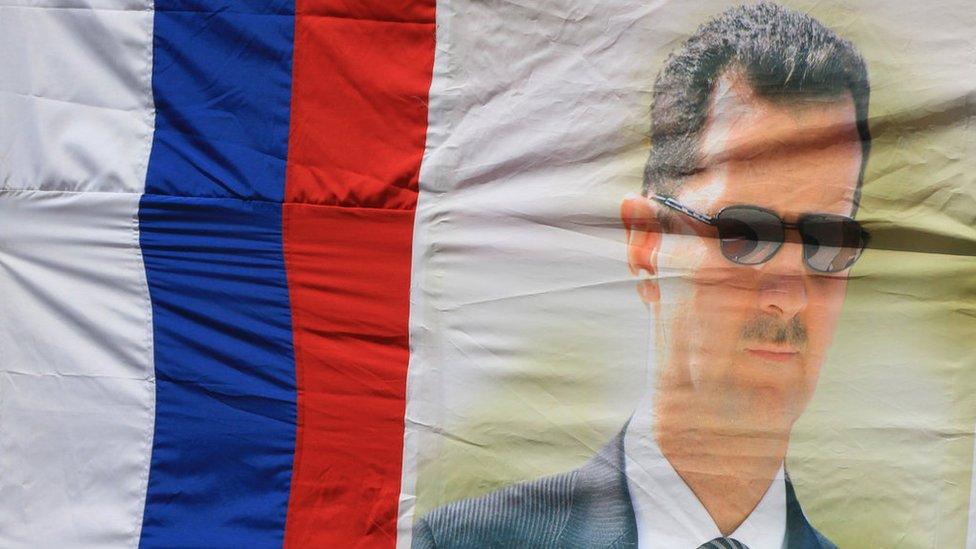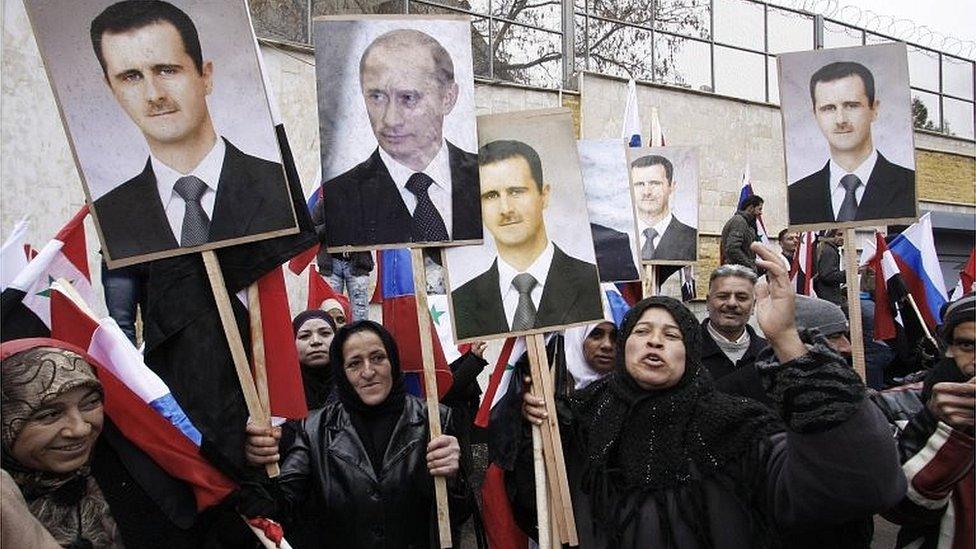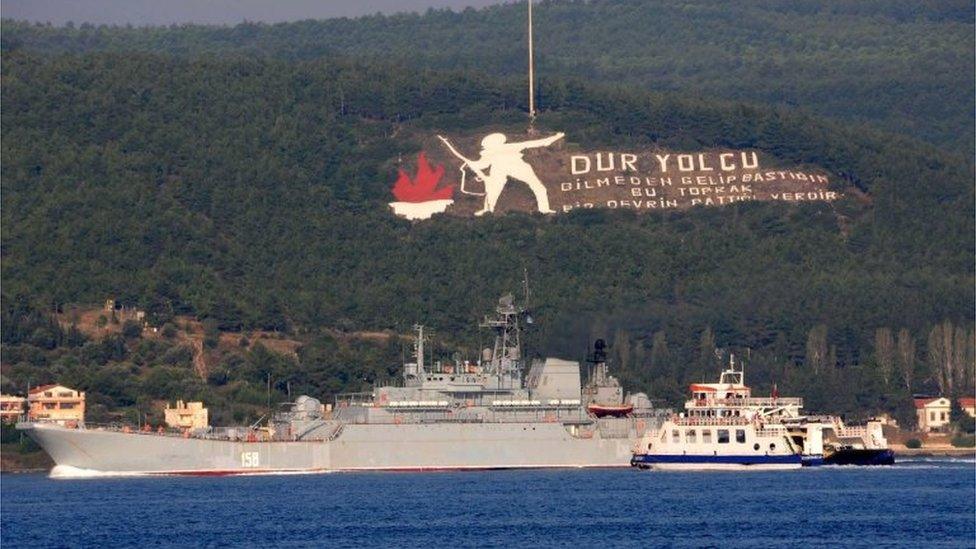Syria conflict: The close ties behind Russia's intervention
- Published

While Russia's dramatic involvement in the war in Syria has reverberated in capitals around the world, in government-controlled Damascus life goes on much the same as before.
Residents are still concerned by power cuts, water shortages and watching out for falling mortars.
The sound of regime warplanes attacking rural Damascus has become part of daily life and the new development just adds another layer.
"Who cares who is hitting where, almost all the world is involved in slaughtering Syria," said Samar (not her real name), who lives in the capital, in a telephone call.
Five years on since the protests calling for freedom and democracy began in Syria, people in areas under government control are still afraid of voicing dissent, fearing detention by security forces.
For Samar, Russia's intervention is tantamount to an occupation of Syria, but others see it as a natural development of ties which stretch back decades.
Relations between Damascus and Moscow deepened after Bashar al-Assad's father, Hafez, developed a strategic and military alliance with what was then the Soviet Union.

Russian air strikes - in depth
What hardware does Russia have?
Where key countries stand - Who is backing whom
Why? What? How? - Five things you need to know about Russia's involvement
What can Russia's air force do? - The US-led coalition has failed to destroy IS. Can Russia do any better?
Inside an air strike - Activist describes "frightening Russian air strike"
Syria's civil war explained - Analysis and background on the conflict

"Since Soviet times the Russians have been increasing their presence and ties in Syria gradually," said one Damascus resident, a musician who was taught by Russian tutors.
"Regional developments over decades drove Syria closer to the Russians, and they [the Russians] were more present and influential in the country than the West," he said.
Russian education
The co-operation with Russia took different forms, most importantly on the military level, but also many Russian companies were given lucrative contracts in oil and gas fields and other industrial sectors.
Russia's imprint is clear even in the architecture of Damascus. On the highway leading to Homs, a residential block for Russian experts and their families was built, whose design was copied in many parts of the city.
The Russian Cultural Centre in Damascus was a place were Syrians used to go to learn about Russian culture, take classes in ballroom dancing and drink good quality vodka.
Educational support and scholarships were offered to Syrians to go and study there. Most of them had close links to the regime and the ruling Baath party.

Russia-Syrian ties go back decades
Many came back with fake certificates to take up high positions in government and education.
"The military and cultural fields were the strong ones but in other areas, there was a lot of room of corruption," the musician said.
"We would never go to a doctor who had studied in Russia because we never trusted that they had qualified."
'No sovereignty'
But Dr Salwa Abed Allah, who herself studied in Russia, sees things differently.
"There were cases of students who were sent to study by their syndicates or parties and came back empty handed, but most of the students who were sent by government came back qualified."
For Dr Abed Allah, the recent Russian involvement is welcomed, and she is even hopeful of an end to the war in Syria.
"We don't like to see any foreign troops on our ground, but if it's a choice between between Islamic State [IS] or the Russians, we definitely welcome the Russians.

"We consider them our friends and allies. They are here to rescue us."
But the musician sees Russia's involvement as much a violation of sovereignty as any other foreign presence in Syria.
"Our country is gone and will never be back the same again. We are helplessly watching our country being torn apart," he said.
"There is no sovereignty in Syria. When regional powers are playing in your back yard and you have no say, you can't claim this is a sovereign country".
'Still a player'
On one level, Russia is acting to change the dynamics on the ground and protect Bashar al-Assad.
For the Russians it is also an attempt to limit Iran's influence in Syria and send a message to the world that they are still a player in the region.
Officially, Russia says it was invited in by Damascus to fight "terrorists", but like the regime, it makes no distinction between IS and other rebel groups.
Western sources say so far Russia's air strikes have hit mainly non-IS rebels.
A high-ranking Russian official has said the talk in Moscow is that the operation could last three-to-four months, but there is the risk that for Russia Syria could become the new Afghanistan, with many years of bloodshed to come.